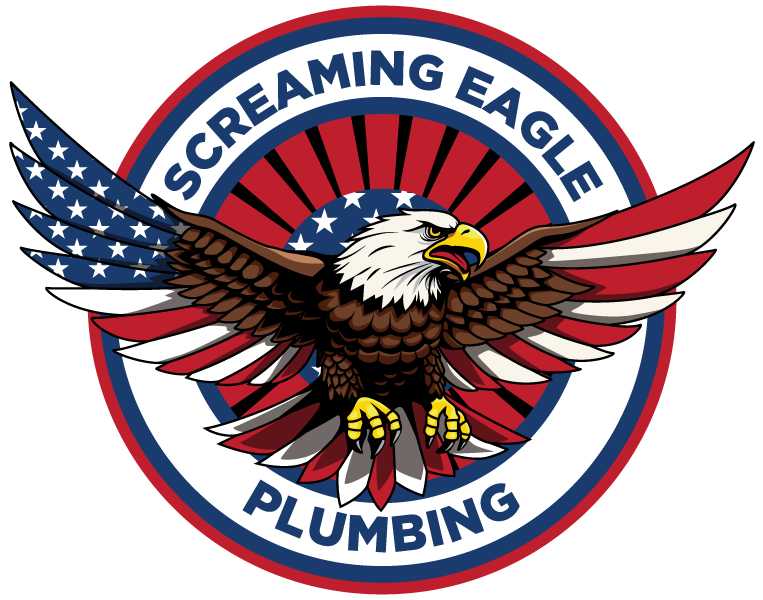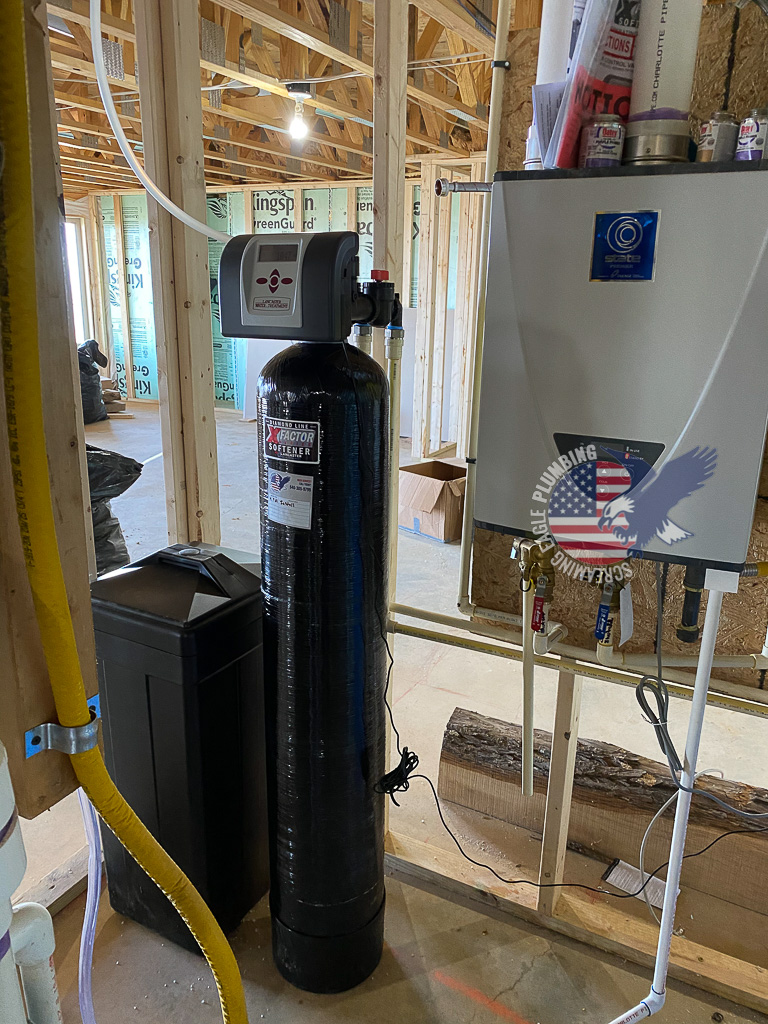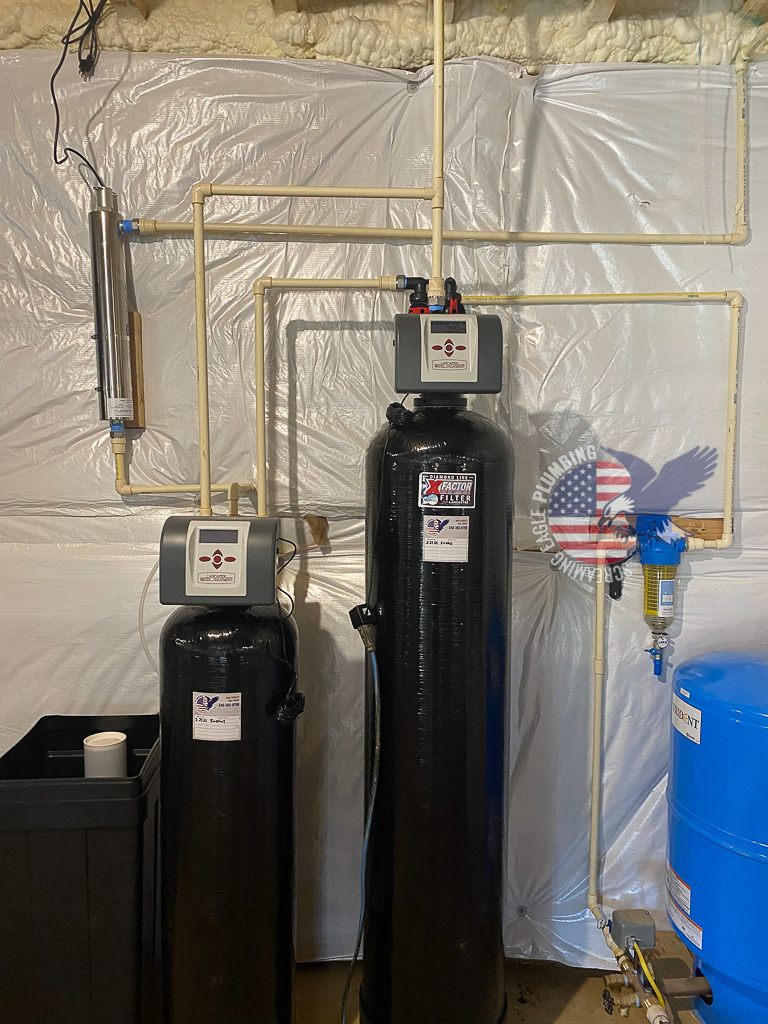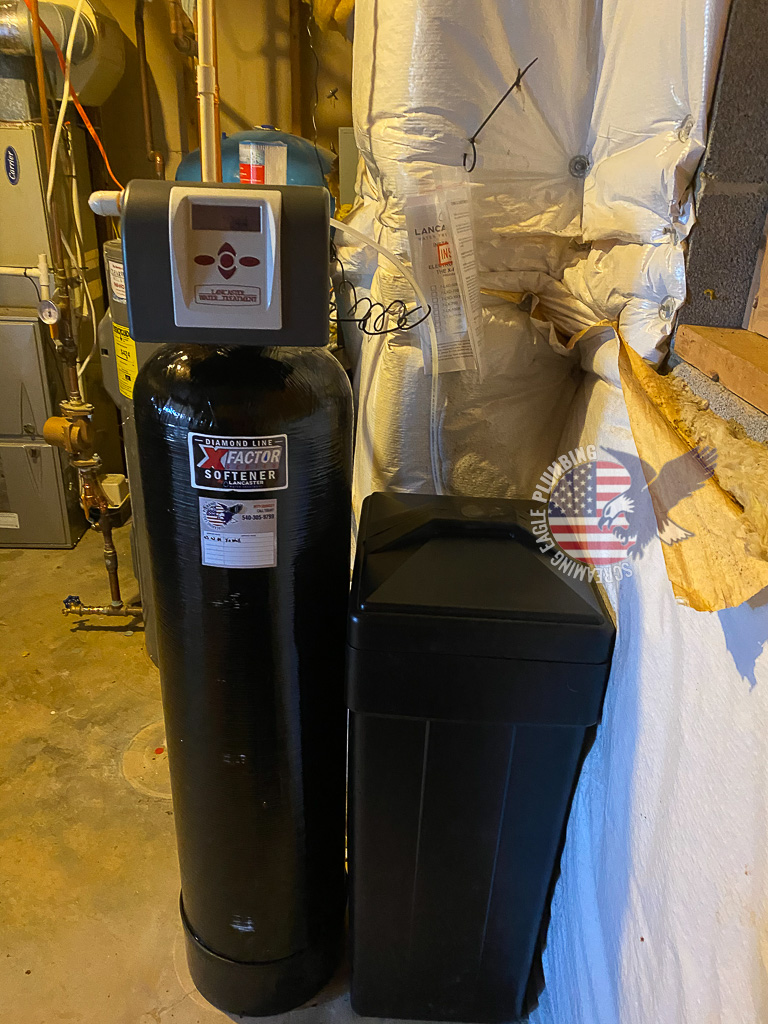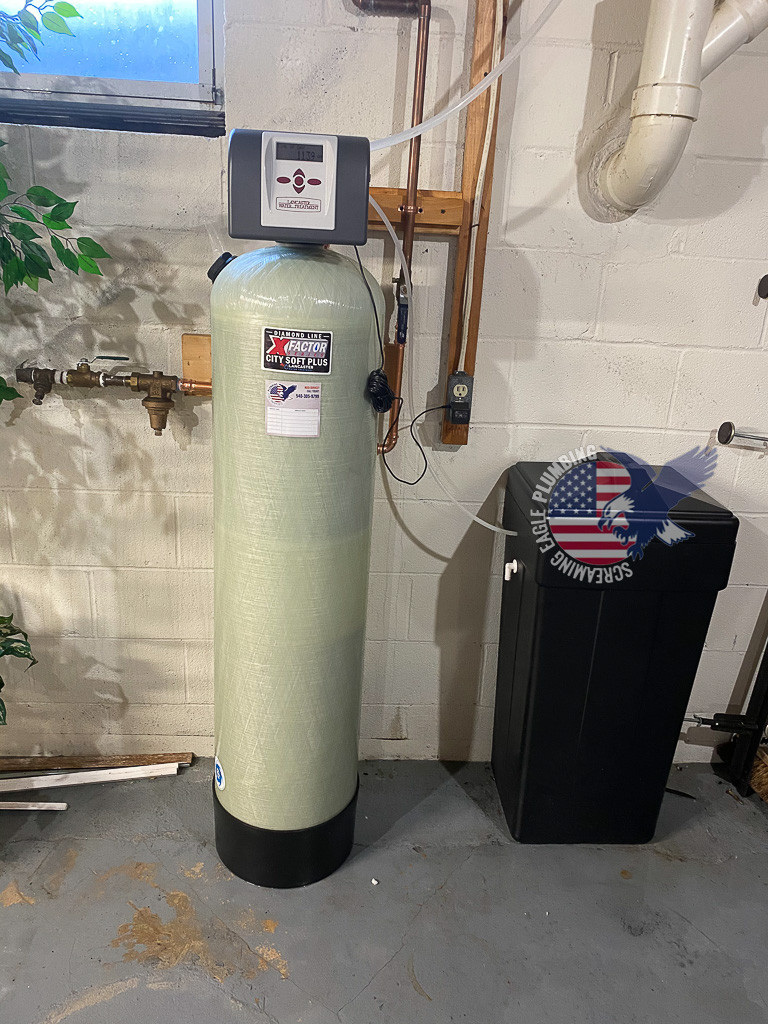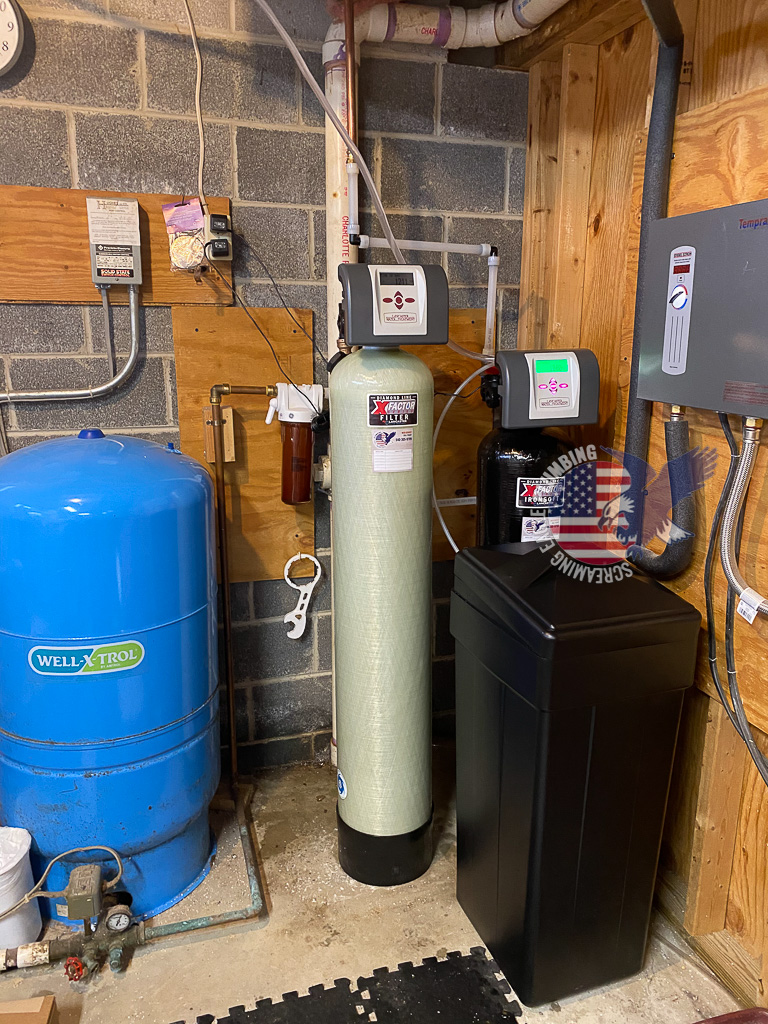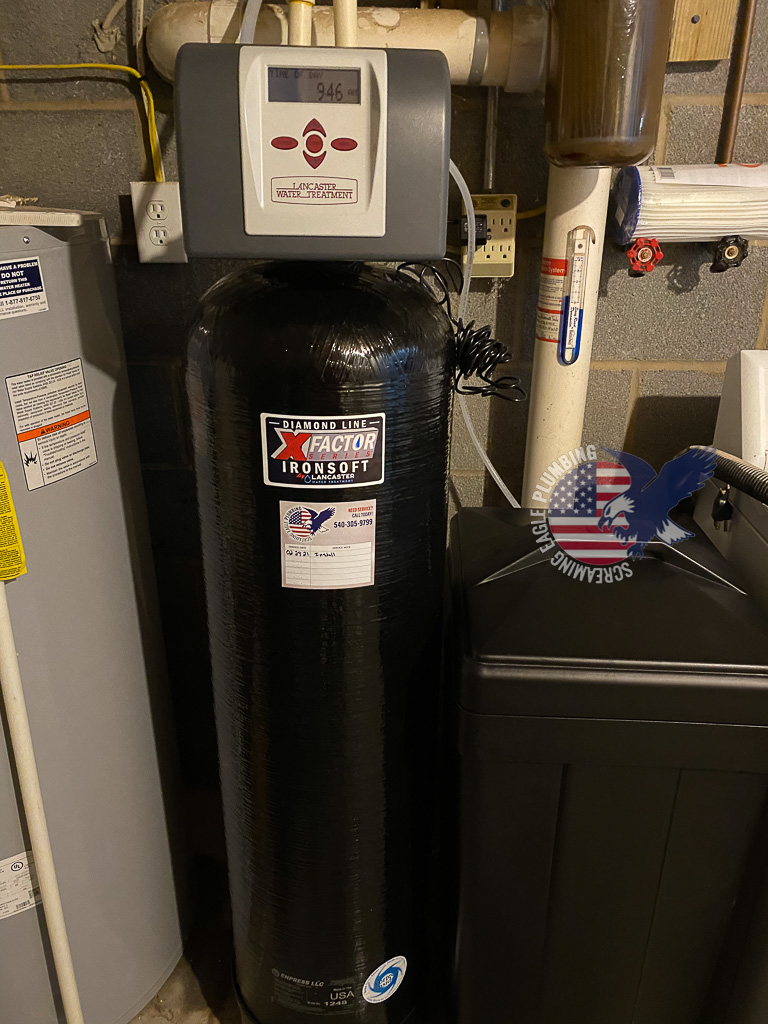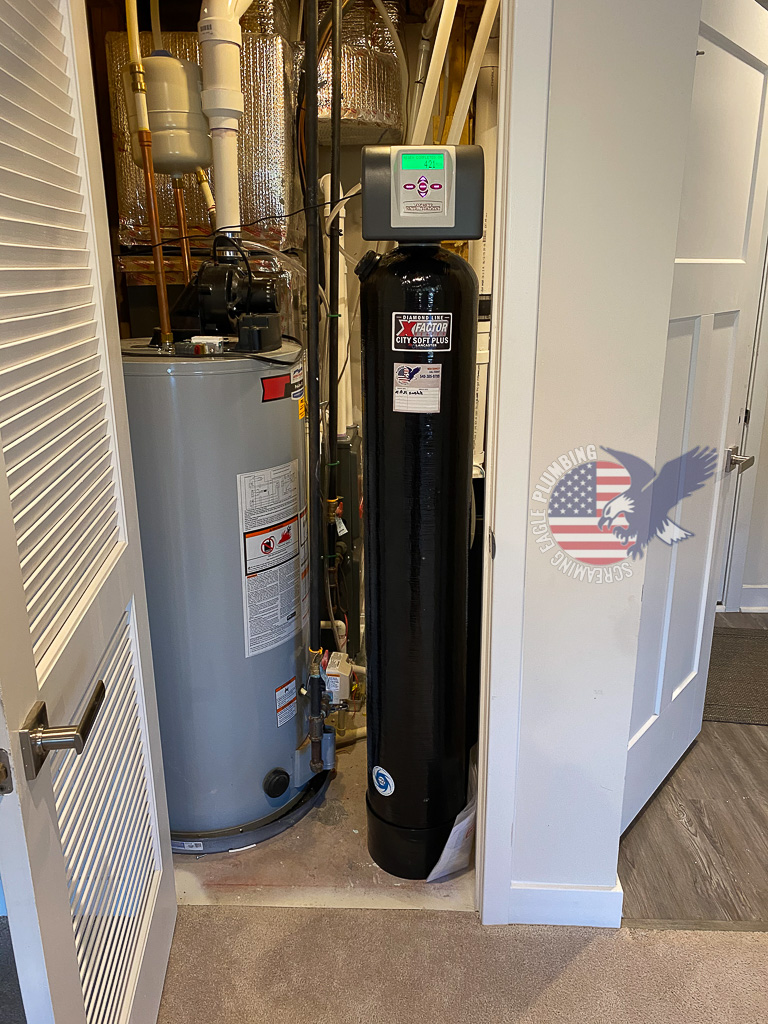WATER FILTRATION SYSTEM INSTALLATION PROSRepairs & Maintenance FAQs
Bacteria and microorganisms can enter water supplies through various means, such as contaminated runoff from rainfall, sewage overflows, compromised septic systems, agricultural runoff, and untreated waste from wildlife. Regular water treatment and filtration can effectively reduce or eliminate these microorganisms.
Consuming contaminated water can lead to a range of health issues. Bacterial contamination can cause gastrointestinal illnesses and infections. Chemical pollutants might lead to hormonal imbalances, reproductive issues, and even increased risk of certain cancers. Heavy metals like lead or arsenic can affect the nervous system and overall organ function.
Boiling can effectively kill many bacteria, viruses, and parasites, but it won’t remove chemical contaminants, heavy metals, or sediment. In fact, boiling might concentrate certain chemicals, making them even more harmful. A comprehensive filtration system is the best way to ensure water is free from a wide range of contaminants.
Harmful chemicals can enter water supplies due to industrial discharges, agricultural runoff (containing pesticides and fertilizers), sewage treatment plants, or even from corroding pipes and plumbing fixtures. Some chemicals are also added during the water treatment process, like chlorine, to kill bacteria.
Long-term ingestion of contaminated water can lead to chronic health conditions. For instance, prolonged exposure to certain industrial chemicals can harm the liver, kidneys, and central nervous system and increase cancer risk. Consuming water with high levels of chlorine by-products has been linked to certain types of cancer.
Regular testing is key. By having your water professionally tested, you can identify which contaminants are present. Based on the results, you can choose a filtration system tailored to your specific needs, ensuring your water is as pure and safe as possible.
Whole-house filtration systems often combine multiple filtration methods. For instance, they might use UV purification to kill bacteria and viruses, activated carbon filters to remove chemicals, and sediment filters to catch larger particles. This multi-pronged approach ensures comprehensive purification.
Chlorine is often added to municipal water to kill bacteria, and its smell can indicate its presence. However, the smell doesn’t guarantee the water is free from all harmful microorganisms or other contaminants. Plus, prolonged exposure to chlorine in drinking water isn’t ideal, which is why many opt for filters that remove it.
The Need for Water Softeners: Combatting Hard Water in Homes with Wells
Water is often called the elixir of life, vital for our daily activities and health. Yet, not all water is created equal, mainly when sourced from a well or laden with minerals. If you’ve noticed spots on your dishes, a filmy residue on your skin after a shower, or your appliances wearing out faster than they should, it’s time to understand the importance of water softeners for homes, particularly those with well water.
What is Hard Water?
Hard water is a term used to describe water with a high mineral content, primarily calcium and magnesium. While these minerals aren’t harmful to ingest, they can harm your home and daily activities. Well water, sourced from the ground, often has abundant minerals, making it naturally ‘harder’.
Why Should Homeowners Be Concerned?
- Appliance Lifespan: Hard water can be harsh on home appliances. The minerals can build up in dishwashers, washing machines, and water heaters, causing them to work harder and wear out faster. This means more frequent replacements and higher costs over time.
- Soap Efficiency: Have you ever noticed that your soap doesn’t lather as well? Hard water reduces the efficiency of soaps and detergents. You end up using more soap yet feeling less clean.
- Skin and Hair Health: The minerals in hard water can leave a residue on your skin and hair. This can lead to dryness, irritation, and a dull appearance.
- Plumbing Issues: Over time, the minerals in hard water can cause deposits to build up in your pipes. This buildup can reduce water flow and increase pressure, potentially causing leaks or breaks in your plumbing.
- Stains and Residue: Those white spots on your dishes and faucets? That’s a telltale sign of hard water. These mineral deposits, or “scale,” can be challenging to clean and tarnish the look of your fixtures and glassware.
The Solution: Water Softeners
Water softeners are designed to combat the issues caused by hard water. They exchange the calcium and magnesium in your water with sodium ions. The result? Water that’s ‘softer’ and kinder to your home.
Why Well Water Homes Need It Most
While hard water can be an issue for many households, homes with well water are especially susceptible. Groundwater naturally dissolves the rock, accumulating minerals over time. Without treatment, well water can be one of a home’s most complex water sources.
Benefits of Installing a Water Softener
- Cost Savings: By prolonging the life of your appliances and reducing the need for repairs or replacements, water softeners can save you money in the long run.
- Better Cleaning: With softer water, detergents, and soaps work better, leading to cleaner clothes, shinier dishes, and a more refreshing shower.
- Extended Plumbing Life: Reduce the risk of scale buildup in your pipes, ensuring a longer and more efficient life for your home’s plumbing.
- Improved Health and Feel: Without mineral residues, your skin and hair will feel softer and more radiant.
In Conclusion
For homeowners, especially those with well water, investing in a water softener isn’t just a luxury; it’s a necessity. The benefits are manifold from prolonging the life of your appliances and plumbing to ensuring the health of your skin and hair. A water softener is a worthy addition if you’re looking to safeguard your home and elevate your daily living experience.
WATER FILTRATION SYSTEM INSTALLATION PROSRepairs & Maintenance FAQs
Bacteria and microorganisms can enter water supplies through various means, such as contaminated runoff from rainfall, sewage overflows, compromised septic systems, agricultural runoff, and untreated waste from wildlife. Regular water treatment and filtration can effectively reduce or eliminate these microorganisms.
Consuming contaminated water can lead to a range of health issues. Bacterial contamination can cause gastrointestinal illnesses and infections. Chemical pollutants might lead to hormonal imbalances, reproductive issues, and even increased risk of certain cancers. Heavy metals like lead or arsenic can affect the nervous system and overall organ function.
Boiling can effectively kill many bacteria, viruses, and parasites, but it won’t remove chemical contaminants, heavy metals, or sediment. In fact, boiling might concentrate certain chemicals, making them even more harmful. A comprehensive filtration system is the best way to ensure water is free from a wide range of contaminants.
Harmful chemicals can enter water supplies due to industrial discharges, agricultural runoff (containing pesticides and fertilizers), sewage treatment plants, or even from corroding pipes and plumbing fixtures. Some chemicals are also added during the water treatment process, like chlorine, to kill bacteria.
Long-term ingestion of contaminated water can lead to chronic health conditions. For instance, prolonged exposure to certain industrial chemicals can harm the liver, kidneys, and central nervous system and increase cancer risk. Consuming water with high levels of chlorine by-products has been linked to certain types of cancer.
Regular testing is key. By having your water professionally tested, you can identify which contaminants are present. Based on the results, you can choose a filtration system tailored to your specific needs, ensuring your water is as pure and safe as possible.
Whole-house filtration systems often combine multiple filtration methods. For instance, they might use UV purification to kill bacteria and viruses, activated carbon filters to remove chemicals, and sediment filters to catch larger particles. This multi-pronged approach ensures comprehensive purification.
Chlorine is often added to municipal water to kill bacteria, and its smell can indicate its presence. However, the smell doesn’t guarantee the water is free from all harmful microorganisms or other contaminants. Plus, prolonged exposure to chlorine in drinking water isn’t ideal, which is why many opt for filters that remove it.
The Need for Water Softeners: Combatting Hard Water in Homes with Wells
Water is often called the elixir of life, vital for our daily activities and health. Yet, not all water is created equal, mainly when sourced from a well or laden with minerals. If you’ve noticed spots on your dishes, a filmy residue on your skin after a shower, or your appliances wearing out faster than they should, it’s time to understand the importance of water softeners for homes, particularly those with well water.
What is Hard Water?
Hard water is a term used to describe water with a high mineral content, primarily calcium and magnesium. While these minerals aren’t harmful to ingest, they can harm your home and daily activities. Well water, sourced from the ground, often has abundant minerals, making it naturally ‘harder’.
Why Should Homeowners Be Concerned?
- Appliance Lifespan: Hard water can be harsh on home appliances. The minerals can build up in dishwashers, washing machines, and water heaters, causing them to work harder and wear out faster. This means more frequent replacements and higher costs over time.
- Soap Efficiency: Have you ever noticed that your soap doesn’t lather as well? Hard water reduces the efficiency of soaps and detergents. You end up using more soap yet feeling less clean.
- Skin and Hair Health: The minerals in hard water can leave a residue on your skin and hair. This can lead to dryness, irritation, and a dull appearance.
- Plumbing Issues: Over time, the minerals in hard water can cause deposits to build up in your pipes. This buildup can reduce water flow and increase pressure, potentially causing leaks or breaks in your plumbing.
- Stains and Residue: Those white spots on your dishes and faucets? That’s a telltale sign of hard water. These mineral deposits, or “scale,” can be challenging to clean and tarnish the look of your fixtures and glassware.
The Solution: Water Softeners
Water softeners are designed to combat the issues caused by hard water. They exchange the calcium and magnesium in your water with sodium ions. The result? Water that’s ‘softer’ and kinder to your home.
Why Well Water Homes Need It Most
While hard water can be an issue for many households, homes with well water are especially susceptible. Groundwater naturally dissolves the rock, accumulating minerals over time. Without treatment, well water can be one of a home’s most complex water sources.
Benefits of Installing a Water Softener
- Cost Savings: By prolonging the life of your appliances and reducing the need for repairs or replacements, water softeners can save you money in the long run.
- Better Cleaning: With softer water, detergents, and soaps work better, leading to cleaner clothes, shinier dishes, and a more refreshing shower.
- Extended Plumbing Life: Reduce the risk of scale buildup in your pipes, ensuring a longer and more efficient life for your home’s plumbing.
- Improved Health and Feel: Without mineral residues, your skin and hair will feel softer and more radiant.
In Conclusion
For homeowners, especially those with well water, investing in a water softener isn’t just a luxury; it’s a necessity. The benefits are manifold from prolonging the life of your appliances and plumbing to ensuring the health of your skin and hair. A water softener is a worthy addition if you’re looking to safeguard your home and elevate your daily living experience.
